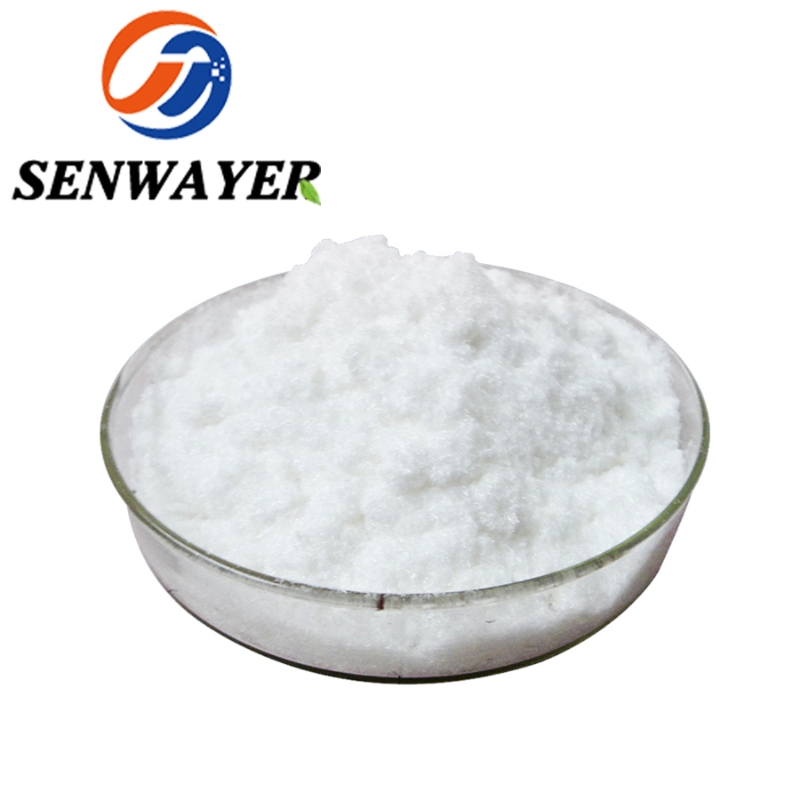-
Categories
-
Pharmaceutical Intermediates
-
Active Pharmaceutical Ingredients
-
Food Additives
- Industrial Coatings
- Agrochemicals
- Dyes and Pigments
- Surfactant
- Flavors and Fragrances
- Chemical Reagents
- Catalyst and Auxiliary
- Natural Products
- Inorganic Chemistry
-
Organic Chemistry
-
Biochemical Engineering
- Analytical Chemistry
-
Cosmetic Ingredient
- Water Treatment Chemical
-
Pharmaceutical Intermediates
Promotion
ECHEMI Mall
Wholesale
Weekly Price
Exhibition
News
-
Trade Service
β-Alanine, N-(2,4-dihydroxy-3,3-dimethyl-1-oxobutyl)-, calcium salt (2:1) is a synthetic compound that is commonly used in the chemical industry for a variety of applications.
This compound is synthesized through a series of chemical reactions that involve the use of various chemicals and reagents.
The synthetic routes of β-alanine, N-(2,4-dihydroxy-3,3-dimethyl-1-oxobutyl)-, calcium salt (2:1) can vary depending on the manufacturing process and the desired purity of the final product.
One of the most common synthetic routes for β-alanine, N-(2,4-dihydroxy-3,3-dimethyl-1-oxobutyl)-, calcium salt (2:1) involves the reaction of 2,4-dihydroxy-3,3-dimethyl-1-butanone with N-(2,4-dihydroxy-3,3-dimethyl-1-oxobutyl)-β-alanine in the presence of a base such as sodium hydroxide.
This reaction results in the formation of the desired compound, which can then be purified by chromatography or other methods.
Another synthetic route involves the reaction of 2,4-dihydroxy-3,3-dimethyl-1-butanone with β-alanine in the presence of a strong acid catalyst, such as sulfuric acid.
This reaction results in the formation of the desired compound, which can then be purified using a variety of techniques.
The synthetic routes of β-alanine, N-(2,4-dihydroxy-3,3-dimethyl-1-oxobutyl)-, calcium salt (2:1) can also involve the use of other reagents and chemicals, such as hydroxides, amines, and acids.
The specific reagents and conditions used will depend on the manufacturing process and the desired properties of the final product.
One of the benefits of the synthetic routes of β-alanine, N-(2,4-dihydroxy-3,3-dimethyl-1-oxobutyl)-, calcium salt (2:1) is the high level of purity and consistency that can be achieved in the final product.
This is important in the chemical industry, where the quality of the raw materials and final products is critical for the performance and reliability of the products.
Another benefit is the ability to scale up production to meet the demands of large-scale manufacturing.
By using optimized synthetic routes and purification methods, it is possible to manufacture large quantities of β-alanine, N-(2,4-dihydroxy-3,3-dimethyl-1-oxobutyl)-, calcium salt (2:1) in a cost-effective and efficient manner.
In conclusion, β-alanine, N-(2,4-dihydroxy-3,3-dimethyl-1-oxobutyl)-, calcium salt (2:1) is a synthetic compound that is commonly used in the chemical industry for a variety of applications.
The synthetic routes of β-alanine, N-(2,4-dihydroxy-3,3-dimethyl-1-oxobutyl)-, calcium salt (2:1) can vary depending on the manufacturing process and the desired purity of the final product.
The use of optimized synthetic routes and purification methods allows for the manufacture of high-quality, consistent products on a large scale.







